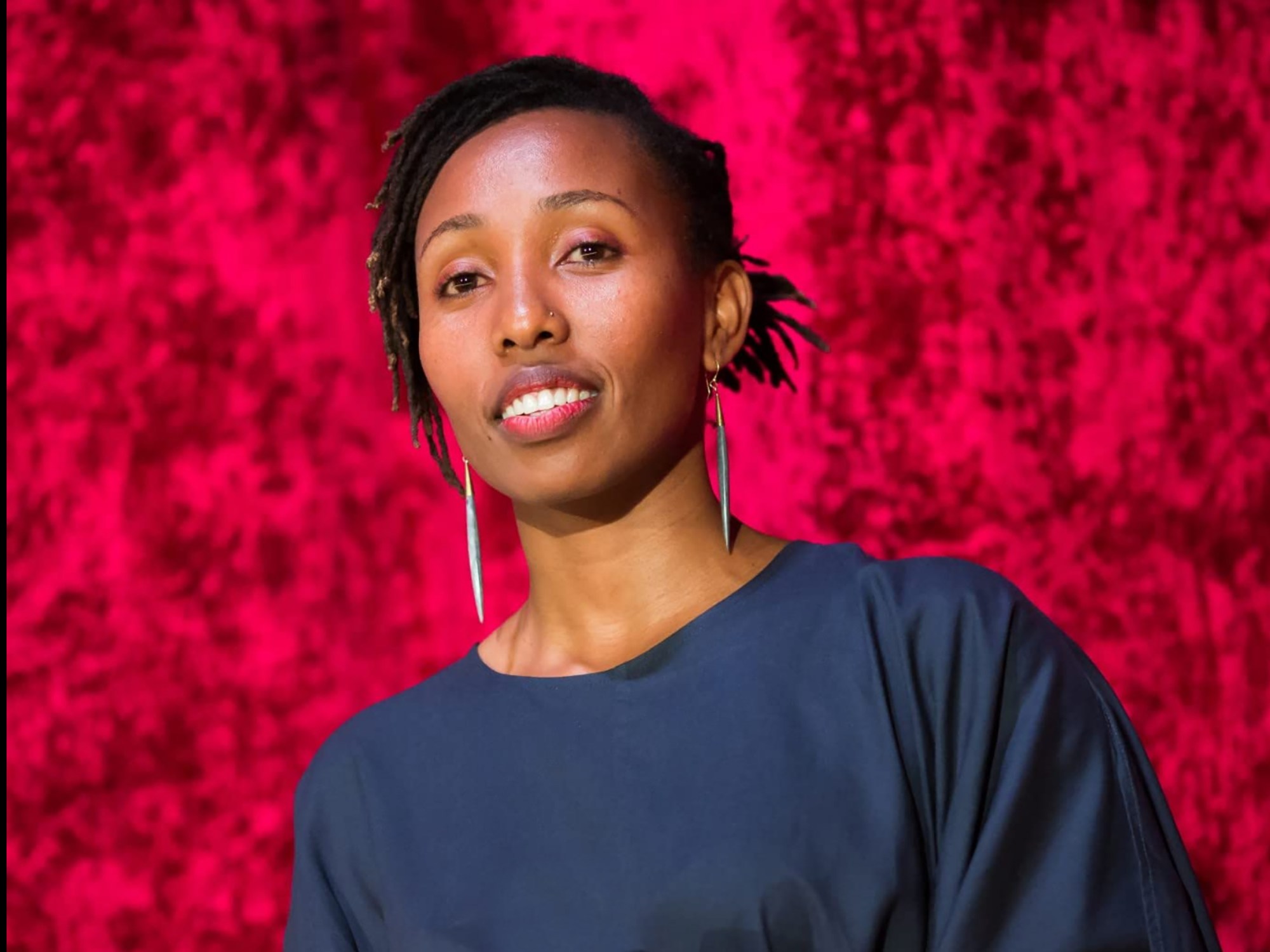
- Interviews
Filmmaker Myriam U. Birara Brings Rwandan Cinema to Center Stage at the Berlinale
After being awarded a special mention for best first feature at the last edition of the Berlinale, filmmaker Myriam U. Birara became one of the young talents to watch.
Born in 1992 in the Democratic Republic of Congo to Rwandan parents, Myriam U. Birara moved to Kigali, Rwanda, at the age of two. That’s where she got her BA in Finance and developed her cinematic skills as well as her work as a visual artist.
Following a variety of jobs in several Rwandan productions, she decided to direct. Imuhira (2021) became her first short film. In 2022 her first feature, The Bride, got accepted to the Berlinale and the festival’s audience became captivated by the drama in 2023.
The story is set three years after the Rwandan genocide. It follows Eva, who had been kidnapped and raped. When her family agrees to a forced marriage she finds a confidant in the man’s cousin, who lives in the same house. By sharing experiences and conversations, Eva becomes aware of their family’s traumatic past.
Having watched the movie at the Berlin film festival, we set up a virtual meeting with Birara to talk about her experience.
Did you always know you wanted to be a filmmaker? Do you come from a family of artists?
Not at all. My only contact with art while growing up was the church choir. My parents are Christian and very religious. We used to go to church regularly. When I started becoming interested in art, it was something very new to the family. I used to draw a lot. I created little stories through images. It was not until I was 17 years old that I realized I wanted to be a filmmaker. I remember I watched the Rwandan art house movie Long Coat and fell in love with the art form.
Why did you pursue the idea of The Bride as your first feature film?
After my short film and experimenting for a while with cameras, I realized I was ready for my first feature. I was working on an idea that I had but, somehow, the creative process was not flowing. I had some notes for The Bride tucked away. I finally decided to put a hold on the project I was developing and dove into Eva’s story. I very soon realized that that was the idea I should be focusing on. It’s about my country, it’s about showing our psyche to the world, it’s about Rwanda’s past. I was interested in showing the trauma of a society that had been the target of a genocide and how people would move on from that. It took me one month and a half to write the script, and a week to shoot.
This is a movie that takes us into the intimate psychology of the characters. When that’s the goal, casting becomes extremely important. How did you choose your actors?
Since I didn’t have a lot of money to do auditions, I just went directly to the actors I wanted for the movie. I had worked in some Rwandan productions and I knew how to get in touch with them. They all accepted. The role of Eva was the most challenging one to fill. While I was searching for the best option, my younger sister mentioned she would like to try it. I ended up accepting the suggestion. I was a bit nervous because she is not a professional actor, but she blew me away.
Did the Rwandan government help you financially in any way with a grant of subsidy?
No. When I realized how long it was going to take to get any kind of grant or subsidy, I decided not to go for it. I just wanted to shoot the movie. I wanted to have the movie shot by the time I was 30 years old. I didn’t wait. I used my savings. I am glad I did it this way. The Rwandan government just started really fostering our cinema culture about 2 years ago. I am hopeful things are going to get much easier and better as far as incentives for filmmakers are concerned. I am looking forward to it.
Do you already know what you are going to work on next?
No. I have several ideas, though. They come to me while I am living my life. While hiking. I love nature. Or while having dinners with friends. I make sure I write all of them on my phone. I take notes. Right now I want to enjoy the path of this movie. It had a great welcome at the Berlinale and I can’t wait to see what will happen next. The movie hasn’t premiered in Rwanda yet. I am very curious to see what will be the reaction to it.

